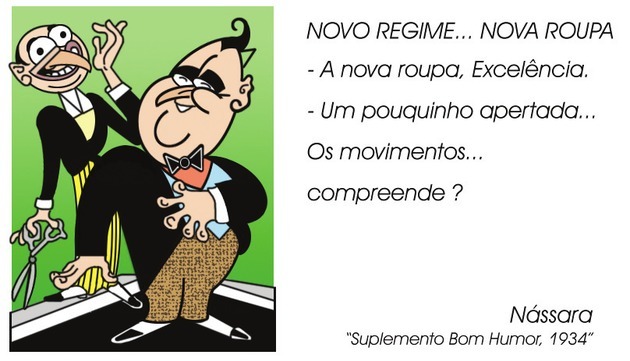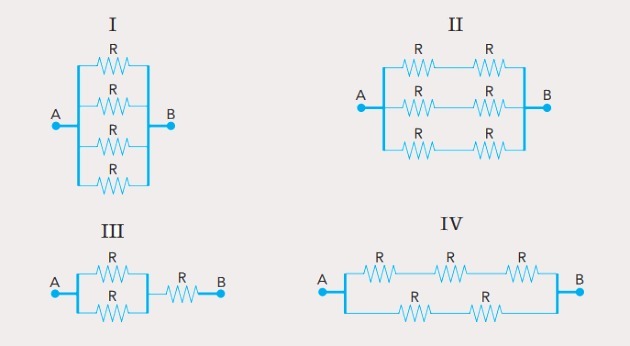questions about Napoleon Bonaparte are often charged in the Enem and in the main entrance exams of Brazilian universities.
We prepared and selected 10 questions about the Napoleonic Era.
Good studies and good luck!
Easy level
question 01
In 1806, as a way to reach England economically, he created a decree against England. This decree became known as:
continental blockade
congress of vienna
anti british decree
english question
international block
a) CORRECT. With the Continental Blockade, European countries were prohibited from carrying out trade with England. The aim was to weaken the English economy.
b) WRONG. The Congress of Vienna was the meeting of absolutist countries to re-establish borders and crowns after Napoleon's first arrest.
c) WRONG. Although it was a kind of "Anti-British Decree", that was not the name of the decree.
d) WRONG. This is not the name given to the decree.
e) WRONG. This is not the name given to the decree.
Question 02
On March 21, 1804, in France, a new code of laws came into force. Were characteristic of the Napoleonic Code, except:
It sought to guarantee equality before the law to all men, regardless of their social class.
Separated the Church from the French State.
Forbade divorce.
It has strong influence from several current law codes.
It came into force during the period of the so-called Napoleonic Era.
a) WRONG. This was the main feature of the Napoleonic Code.
b) WRONG. There was a separation of State and Church with the Code.
c) CORRECT. The Napoleonic Code provided for divorce for French citizens.
d) WRONG. The Napoleonic Code was an inspiration for several current codes, especially with regard to the ideals of legal equality.
e) WRONG. The Code was implemented during the Napoleonic government.
Question 03
In 1815, after his first arrest, Napoleon Bonaparte managed to escape and return to France. The island he had been imprisoned on was the:
Saint Helena Island
Elba Island
maldives islands
island of menorca
Ischia Island
a) WRONG. Saint Helena Island was where Napoleon was taken for his second imprisonment in 1815.
b) CORRECT. The Island of Elba, located off the Italian coast, was the destination of Napoleon's first prison.
c) WRONG. That was not Napoleon's fate during his first arrest.
d) WRONG. That was not Napoleon's fate during his first arrest.
e) WRONG. That was not Napoleon's fate during his first arrest.
Question 04
During the French invasion of Russia, the Russians used a tactic to weaken the Napoleonic army. The name of this tactic was:
Blitzkrieg.
I advance along the flanks.
Fast attack.
Scorched earth.
None of the previous.
a) WRONG. This was the name of the tactic used by the German army during the world wars.
b) WRONG. This was not the tactic used by the Russians.
c) WRONG. This was not the tactic used by the Russians.
d) CORRECT. The scorched earth was based on the practice of destroying crops and the city, abandoning it so that the enemy army, when it arrived, would not find supplies for its troops.
e) WRONG. The correct one is the letter D.
Middle level
Question 05
One of the main consequences for Napoleon of the war against Russia was:
The strengthening of his government, which led to victory against England at the Battle of Waterloo in 1815.
The conquest of Egypt, an event that led the French to withdraw several historical artifacts to be displayed in European museums.
The undermining of his government. After the defeat in Russia and the death of thousands of soldiers, the French saw Napoleon arrested after an invasion led by absolutist countries.
The undermining of his government. With the defeat, however, Napoleon made agreements with the member countries of the Congress of Vienna.
None of the previous.
a) WRONG. The war against the Russians weakened Napoleon.
b) WRONG. The invasions in Egypt were not a consequence of the war against the Russians.
c) CORRECT. Napoleon went to war against the Russians with approximately 500,000 soldiers, but only 27,000 survived. That was a key factor in his arrest.
d) WRONG. Napoleon never made agreements with the countries that were part of the Congress of Vienna after the war against the Russians.
e) WRONG.
Question 06
Consider the statements below:
( ) The Napoleonic Code was created in order to maintain the French judicial characteristics such as the absolutist period.
( ) During the period of the Consulate, Napoleon held a plebiscite with the population, which opted to guarantee him a lifetime position as First Consul.
( ) Napoleon Bonaparte came to power in a coup d'état in 1799, called the "Coup of the 18th Brumaire".
( ) The main objective of the Continental Blockade (1806) was to weaken Spain by prohibiting European countries from trading with them.
V, V, V, F
F, V, V, F
F, F, F, V
F, V, F, F
V-F-F-V
I (FALSE): The Napoleonic Code brought characteristics that departed from the French absolutist period, such as legal isonomy.
II (TRUE): With this plebiscite, Napoleon remained First Consul until he became Emperor in 1804.
III (TRUE): This coup ended the French Revolution and ushered in the Napoleonic Era.
IV (FALSE): The aim was to weaken England, not Spain.
Hard level
Question 07
(Mackenzie) Regarding the Napoleonic Period, it is correct to state that:
the Napoleonic campaigns supported the movement called Conjura dos Equals and disseminated the ideals of the French revolutionary proletariat.
in general, it can be pointed out as the moment when bourgeois institutions were consolidated in France.
Portugal, a traditional ally of France, was one of the first countries to join the Continental Blockade in exchange for help in transferring the royal family to colony Brazil.
the empire was marked by peace agreements with England. who saw in France an ally in the propaganda of the bourgeois capitalist mentality.
the rise of Bonaparte's empire was achieved through political agreements in the Iberian Peninsula, avoiding nationalist and opposition struggles.
a) WRONG. Napoleonic campaigns disseminated bourgeois ideals.
b) CORRECT. Bourgeois ideals came in opposition to absolutist ideas in France.
c) WRONG. Portugal was one of the main losers due to the Continental Blockade.
d) WRONG. England was the main enemy of Napoleon Bonaparte.
e) WRONG. In the Iberian Peninsula, Portugal and Spain were invaded by Napoleonic troops, thus not having political agreements, but a domination.
Question 08
(UFMG) Before, Napoleon had led the Great Army to conquer Europe. If nothing remained of the continental empire he dreamed of founding, he nevertheless annihilated the Ancien Régime wherever he found time to do so; so too, his reign prolonged the Revolution and he was its soldier, as his enemies never ceased to proclaim.
LEFEBVRE, Georges. The French Revolution. São Paulo: IBRASA, 1966. P. 573.
In view of the expansion of revolutionary ideals, provided by the wars conducted by Bonaparte, it is correct to say that
Governments under Napoleon's influence invested in strengthening trade guilds and monopolies.
The transformations provoked by the Napoleonic conquests implied the strengthening of forms of compulsory work.
Napoleon, in all conquered regions, overthrew the monarchical system and implanted republics.
Napoleonic rule led to a redefinition of the European map, as it merged small territories, previously autonomous, and thus created larger states.
None of the previous.
a) WRONG. The governments influenced by Napoleon sought to break with the monopolies, which was advantageous for the bourgeois class.
b) WRONG. The forms of compulsory work are practices opposed to the Napoleonic model, based on salaried work.
c) WRONG. The monarchical model was maintained in the conquered regions. It is necessary to consider that France itself was commanded by Napoleon based on an imperial model.
d) CORRECT. The Napoleonic conquests caused a great change in the European political map, a change that was fought with the Congress of Vienna.
e) ERROR.
Question 09
(UFRGS) In 1815, the Congress of Vienna ended, with the purpose of reorganizing the political map of Europe.
Regarding this Congress, consider the following statements.
I - It was carried out after the defeat of Napoleon Bonaparte, who had altered the balance of forces in Europe.
II - It resulted in the formation of the Holy Alliance to curb any attempt at a liberal revolution.
III - Guaranteed Portugal and Spain territorial gains in Europe, for having fought against the Napoleonic forces.
Which ones are correct?
I only.
Only II.
Only I and II.
Only I and III.
I, II and III.
I (TRUE): The Napoleonic conquests changed much of the European political map.
II (TRUE): The Holy Alliance, created with the Congress of Vienna, was a military union between the main European absolutist countries of the 19th century. Its objective was to prevent bourgeois-inspired movements, as it was with Napoleon, from happening again.
III (FALSE): Spain and Portugal had no territorial gains. On the contrary, their territories were invaded by Napoleon Bonaparte.
question 10
(FGV-RJ) Napoleon Bonaparte took power in France in 1799. From the so-called Coup of the 18th Brumaire, he became first consul, then first consul for life and, later, emperor. During your government
He resumed relations with the Catholic Church and allowed full autonomy for his priests.
He established a parliamentary monarchy, along the lines of the current system of government in England.
He established a new Civil Code that maintained legal equality for male citizens and the right to private property.
He sought to retake former French maritime possessions, engaging in an all-consuming war in Haiti and Southeast Asia.
He allied with the sans-culottes, the most radical groups of the French Revolution, and for this reason he was overthrown in 1814.
a) FALSE. Napoleon sought to separate State and Church during his rule, weakening the political power of the institution.
b) FALSE. Napoleon ruled France from a non-parliamentary empire.
c) TRUE. The Napoleonic Code became known for the characteristics presented in the alternative, influencing other law codes over time.
d) FALSE. His focus was not on retaking old possessions, but on conquering new territories in Europe.
e) FALSE. Napoleon sought support from the haute bourgeoisie and not from the sans-culottes, who were part of the lower bourgeoisie. Furthermore, his fall had nothing to do with it.
See more at:
- Napoleonic era
- Coup of the 18th Brumaire
- Questions about the French Revolution
- Questions about the Coming of the Royal Family
SOUZA, Thiago. 10 questions about the Napoleonic Era (with feedback and comments).All Matter, [n.d.]. Available in: https://www.todamateria.com.br/exercicios-era-napoleonica/. Access at:
See too
- French Revolution Questions
- Napoleonic era
- Coup of the 18th Brumaire
- continental blockade
- Congress of Vienna (1814-1815)
- The Lusiads by Luís de Camões
- Questions about World War II
- Napoleon Bonaparte


